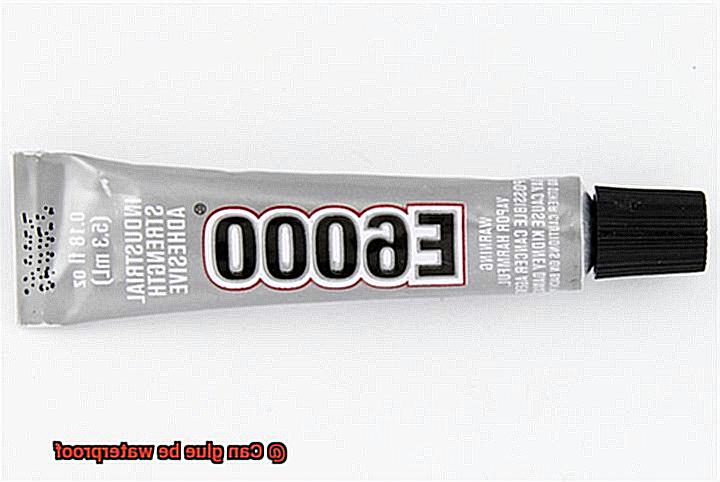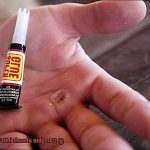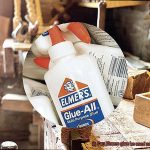Imagine this: You’re in the middle of a DIY project, bonding different materials together with glue when suddenly, a torrential downpour hits. Your first instinct is to protect your project from the rain, but what about the glue you’ve already applied? Will it hold up against the water? This is where the question arises- Can glue be waterproof?
Glue has become an essential tool for both personal and industrial use, serving a multitude of purposes from repairing broken china to building boats. However, not all adhesives are created equal when it comes to water resistance. Using the wrong glue for a project can result in disaster. That’s why we’re here to explore whether or not glue can be waterproof.
Throughout this discussion, we’ll delve into different types of glue and their capabilities in terms of water resistance. We’ll also examine factors that affect the water resistance of glue such as the type of material being bonded and how it’s applied. Additionally, we’ll provide tips on how to ensure that your adhesive is waterproof and how to best protect your glued surfaces from water damage.
So whether you’re planning on building a kayak or just fixing a leaky pipe, this article will guide you in choosing the perfect adhesive for your needs. Join us as we dive into the fascinating world of waterproof glue.
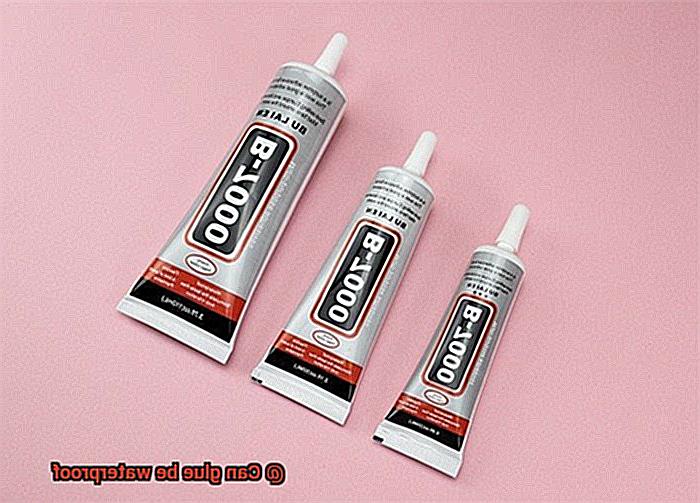
What is Glue?
Contents
Well, wonder no more. Glue is an amazing adhesive substance that can join two or more surfaces together. It’s made from a wide range of materials, including synthetic and natural polymers, animal products, and even vegetables.
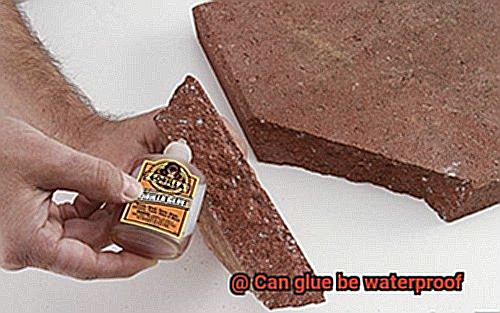
When it comes to choosing the right glue for your project, one of the most important considerations is whether it needs to be waterproof. Fortunately, there are many specialized glues available that are specifically designed to hold up well in wet conditions.
Marine glue, for instance, is a popular choice for boat building and repair because it can withstand exposure to water without losing its adhesive properties. Polyurethane glue is another waterproof option that is often used in woodworking and construction projects. Meanwhile, epoxy glue is commonly used in automotive and aircraft repairs.
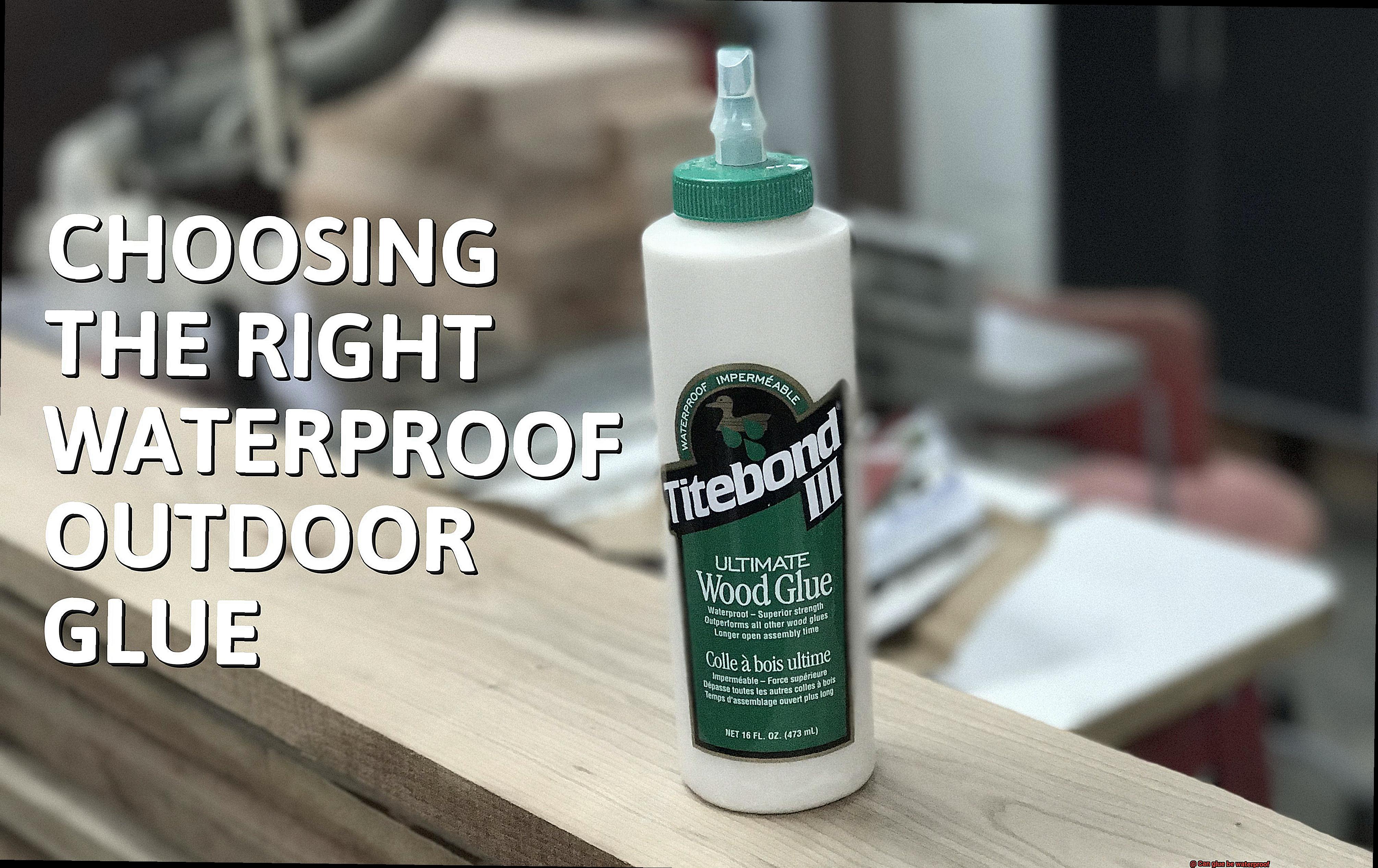
It’s important to keep in mind that not all types of glue are created equal when it comes to water resistance. Traditional white school glue or craft glue, for example, is not designed to be waterproof and will lose its adhesive properties when exposed to water.
When selecting a waterproof glue, it’s crucial to consider the specific application and materials being bonded. Some waterproof glues may not be suitable for certain types of materials or may require specific preparation or application techniques.
Types of Glue
When it comes to bonding surfaces together, nothing is more important than using the right type of glue. Luckily, there are several options available in the market to suit every need. But how do you know which one to choose? Let’s take a look at the various types of glue and their suitability for different applications.
First up, we have white glue, also known as PVA glue. This classic water-based adhesive dries clear and is perfect for porous surfaces like paper, wood, and fabric. However, it’s not waterproof and can easily dissolve when exposed to moisture. So if you need a permanent bond that can withstand water, this might not be the best option.
For non-porous surfaces like metal, plastic, or rubber, cyanoacrylate glue (super glue) is the way to go. It forms an almost instant bond and is incredibly strong. However, it’s not recommended for use in wet environments as it can break down when exposed to water.
If you require a stronger and more durable bond, epoxy glue is the best choice. This two-part adhesive needs to be mixed before application but once applied, it forms a robust bond that can withstand exposure to water and other harsh conditions. It’s perfect for heavy-duty projects that require a lasting hold.
For those working in construction or plumbing and need to seal gaps and joints in wet environments such as bathrooms and kitchens, silicone glue is the go-to option. It’s waterproof and can withstand exposure to moisture without breaking down. This makes it perfect for sealing pipes or fixing leaks in your bathroom or kitchen.
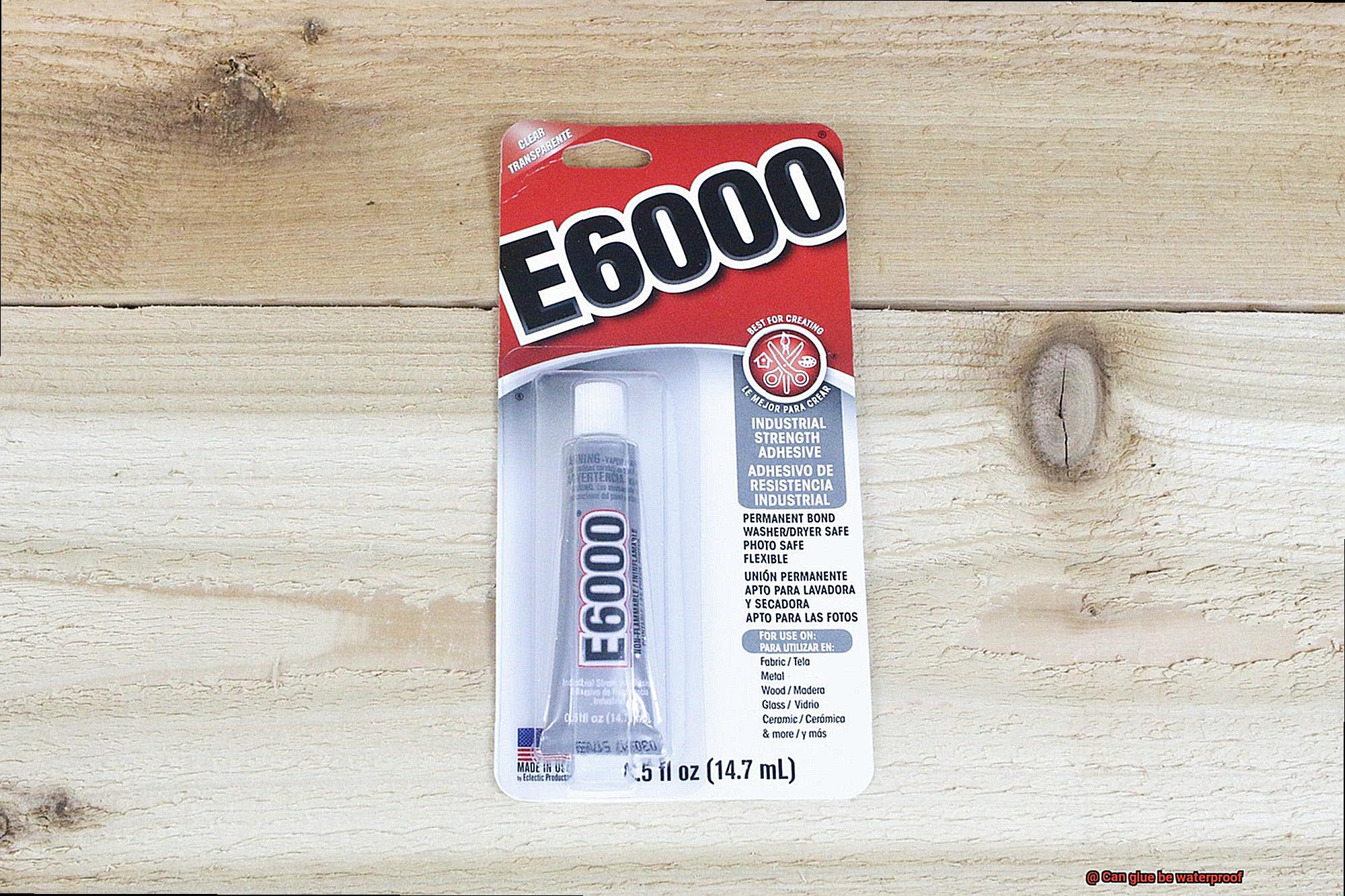
Can Glue be Waterproof?
Glue is an incredibly versatile adhesive that can be used in a wide range of industries, from construction to arts and crafts. However, when it comes to using glue in applications where water or moisture may be present, the question arises: can glue be waterproof? The answer to this question is both yes and no, depending on the type of glue and the specific application.
Let’s start with the good news – some types of glue are water-resistant and can maintain their adhesive strength even when exposed to water for a certain period. These water-resistant glues include epoxy, polyurethane, and cyanoacrylate (super glue). Because of its ability to resist water for extended periods, epoxy glue is particularly well-suited to marine applications like boat building and repairs.
However, not all types of glue are water-resistant. For example, white glue (PVA), wood glue, and contact cement are not waterproof and can lose their adhesive strength when exposed to water. These types of glues are best suited for indoor applications where they will not be exposed to water or moisture.
It’s important to note that even water-resistant glues may not be entirely waterproof in all situations. Prolonged exposure to water can weaken the bond of some water-resistant glues. Additionally, the effectiveness of a water-resistant glue depends on how well it is applied and the surface it is applied on.
In conclusion, the answer to whether glue can be waterproof depends on the type of glue and its intended use. Choosing the right adhesive for your project is crucial – if your project will be exposed to water or moisture, opt for a water-resistant glue like epoxy or polyurethane. However, if your project will only be used indoors and not exposed to water or moisture, then you can safely use wood glue or white glue (PVA).
Marine Glue
Marine glue, also known as boat glue or marine adhesive, is ingeniously designed to work in wet environments, making it an essential tool for anyone working in the marine industry or engaging in water-based activities. It’s formulated to withstand the effects of saltwater, moisture, and extreme temperatures, providing you with a long-lasting and watertight bond.
What sets marine glue apart from other adhesives is its waterproof nature. This one-of-a-kind adhesive creates a strong bond that can resist the effects of water and moisture, making it ideal for use in a variety of marine applications like boat building, repairs, and maintenance. With marine glue by your side, you can rest easy knowing that your vessel is protected from the damaging effects of water.
There are different types of marine glue available in the market, including two-part epoxy adhesives, polyurethane adhesives, and silicone sealants. Each type has its unique properties and advantages, depending on the specific application. For instance, epoxy adhesives are known for their high strength and durability, while silicone sealants are more flexible and can be used to seal gaps and joints.
When working with marine glue, it’s crucial to follow the manufacturer’s instructions carefully. This may include preparing the surface to be bonded or sealed by cleaning it thoroughly and roughening it to improve adhesion. It may also involve applying the adhesive in a specific manner or allowing it to cure for a certain amount of time before exposing it to water or other environmental factors.
Polyurethane Glue
Polyurethane glue is a revolutionary adhesive that has taken the market by storm. Its increasing popularity is due to its amazing waterproof properties, as well as its ability to bond with a wide range of materials, including wood, metal, plastics, and ceramics.
The most significant benefit of polyurethane glue is its exceptional water resistance. Once cured, it can withstand rain, snow, and even complete submersion in water without losing its adhesive properties. This makes it an ideal choice for projects that require a strong bond that can stand up to wet conditions.
Another incredible feature of polyurethane glue is its ability to expand and fill gaps. Upon exposure to moisture, this adhesive creates a foam-like substance that fills gaps and crevices, making it perfect for use in areas where water exposure is likely, such as outdoor furniture or boats.
While this adhesive has many benefits, it’s essential to note that it may take longer to dry than other types of adhesives, with curing times ranging from 12-24 hours depending on the temperature and humidity of the environment. Additionally, because polyurethane glue can be challenging to remove once it has dried, careful application is necessary to avoid getting it on unwanted surfaces.
Epoxy Glue
This versatile and popular adhesive is a two-part system consisting of a resin and a hardener. When mixed together, they form a bond that is not only water-resistant but also heat and chemical-resistant. As an expert in this field, I can attest to the many benefits of using epoxy glue for waterproof projects.
The key advantage of epoxy glue is its resistance to water. It’s perfect for boat building or repairing plumbing fixtures where a strong and durable bond is essential. Unlike other adhesives that may weaken or break down when submerged in water, epoxy glue maintains its strength and integrity even when exposed to moisture for prolonged periods.
However, it’s essential to note that not all epoxy glues are created equal in terms of waterproofing properties. To ensure the best results, choose formulations marketed as “marine grade” or “waterproof.” These types of epoxy glues are specifically designed to resist water and other environmental factors that can weaken other adhesives over time.
-bwjyPhEACk” >
Also Read: Is Super Glue Waterproof? – Glue Things
Conclusion
In conclusion, the answer to whether glue can be waterproof is not a simple yes or no. It depends on the type of glue and its intended use. Some adhesives are water-resistant and can maintain their adhesive strength when exposed to water for a certain period, while others are not designed to withstand moisture.
To ensure that your project remains strong and secure even when exposed to water or other environmental factors, it’s crucial to choose the right adhesive. Marine glue is an excellent option for those working in wet environments or engaging in water-based activities. This specialized adhesive is formulated to withstand the effects of saltwater, moisture, and extreme temperatures, providing a long-lasting and watertight bond.
Polyurethane glue and epoxy glue are also popular choices for waterproof projects due to their exceptional water resistance. Polyurethane glue can fill gaps and crevices while maintaining its adhesive properties even when completely submerged in water. Epoxy glue is perfect for boat building or repairing plumbing fixtures where a strong and durable bond is essential.
However, using waterproof glues requires careful consideration of factors such as surface preparation, application technique, and cure time. By following the manufacturer’s instructions carefully and taking proper precautions during application, you can ensure that your project remains strong and secure even when exposed to water or other environmental factors.

